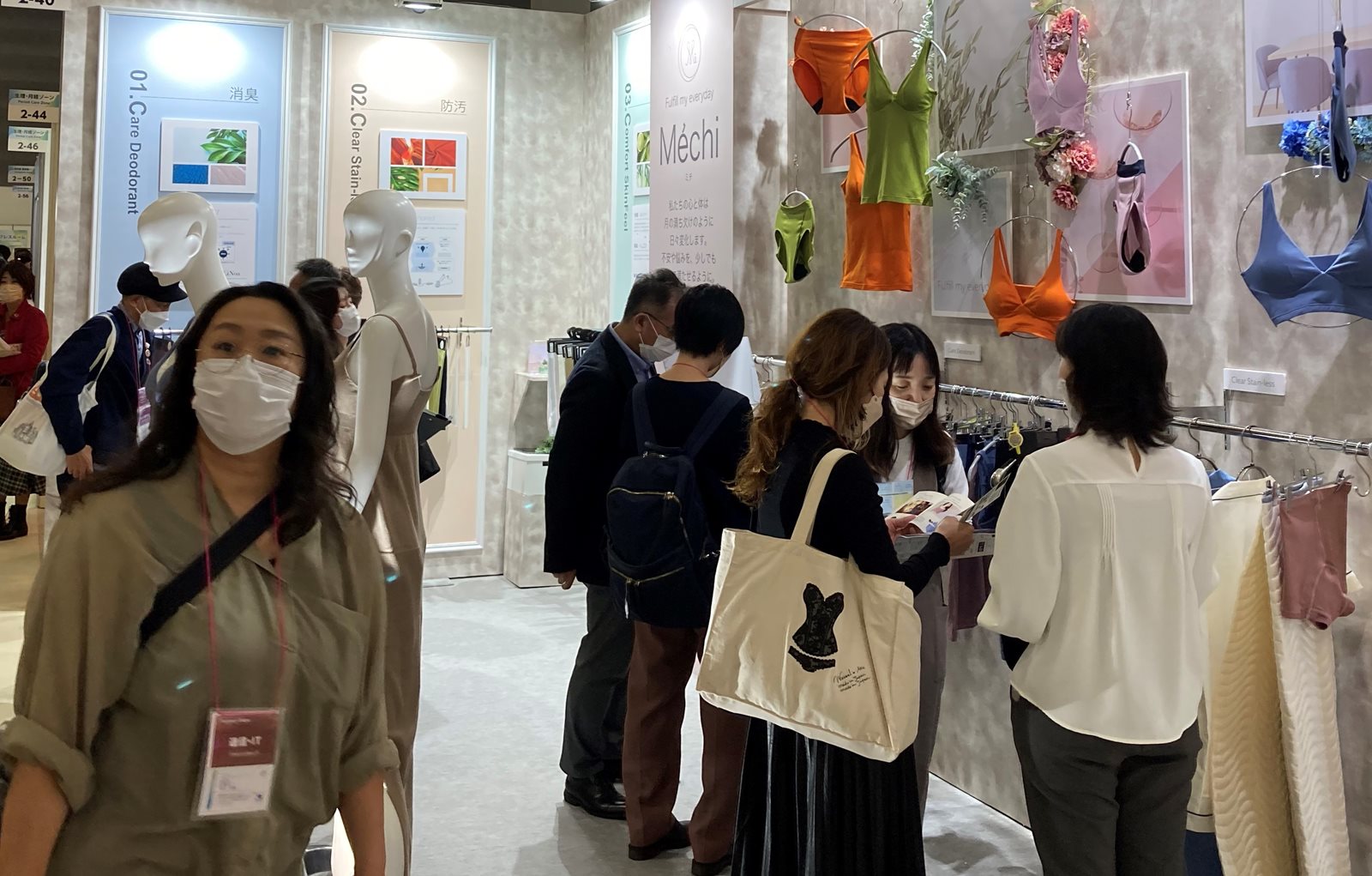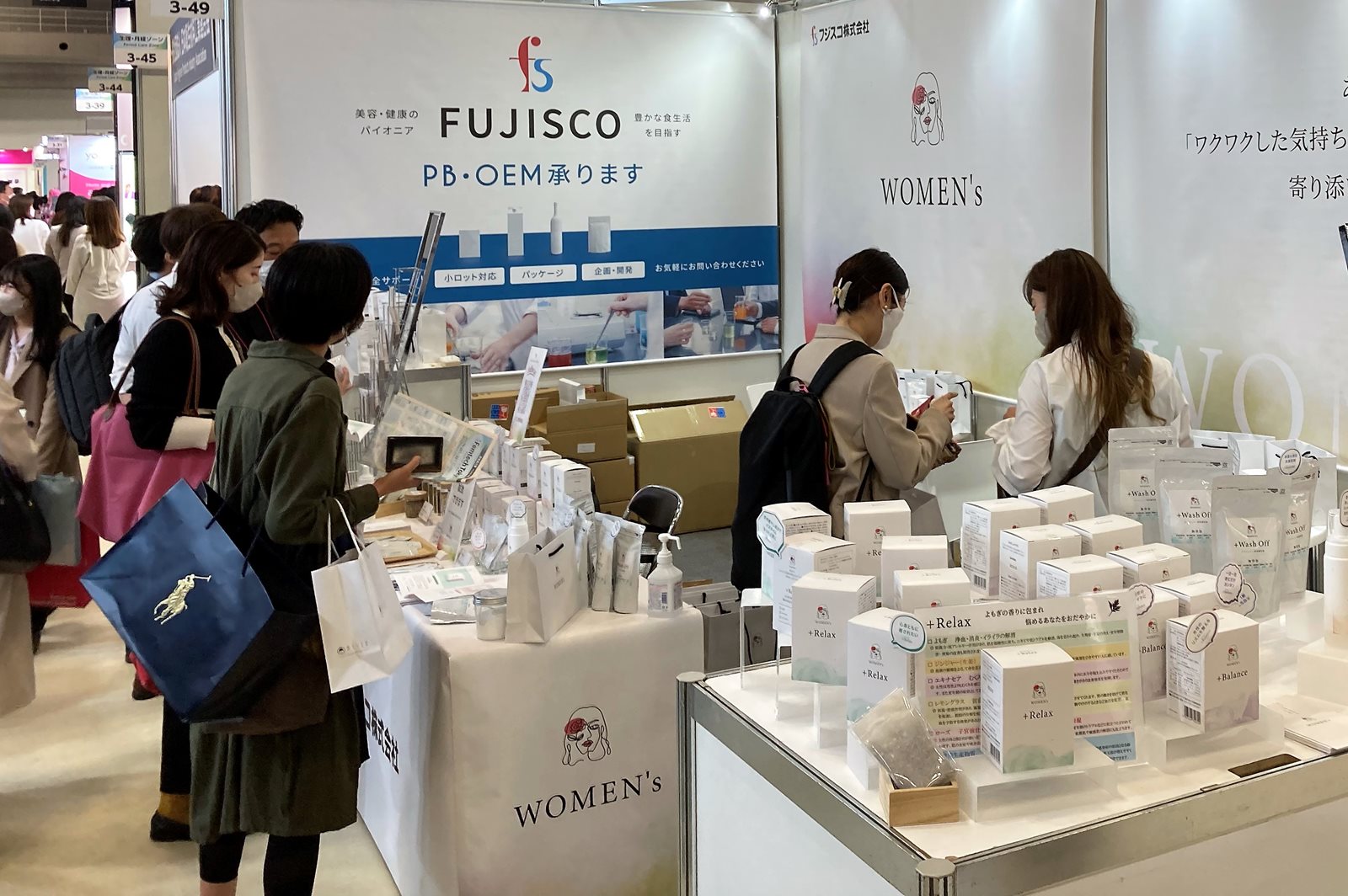This article was originally published by Femtech World - you can read it here.
We attended the first Femtech Tokyo expo the other day, at the Tokyo Big Sight convention centre. We’ve seen smaller femtech events in Japan in the last few years, but this was the first of this scale, held at a venue which usually hosts major shows about quantum computing, automotive tech, smart factories and the like.
In this sense, it was a ground-breaking moment to see femtech finally arriving in Japan. But what we found at the event surprised us, and points to significant opportunities for western femtech firms interested in moving into the market.

What we saw – and didn’t …
We walked through the halls and attended conference sessions, including an interesting talk by Seiko Noda, former Minister for Women’s Empowerment and Gender Equality.
But, as much as we were excited to be at Japan’s first big femtech show, we were as struck by what we didn’t see at the event as what we did.
Most items on show were as general as beauty products and supplements, with no hi-tech or digital aspects at all. Conspicuous by their absence were technologies that address the real problems women face – such as menstrual health, infertility and menopause, as well as breast, ovarian and cervical cancers.
You can see this from the video we took (click below), showing booth after booth of undergarments – from sanitary shorts to night bras and corrective underwear - supplements, herbal teas, Kegel trainers and CBD products.
I would hope there’s much more to femtech than protein powder in pink packaging!
Serious challenges
Conversely, Seiko Noda talked about the serious challenges Japan needs to overcome – including its declining birth rate, an ageing population and the taboo around some women’s health issues.
She was proud to tell the crowd that last year she started the Parliamentary Assembly for the Promotion of Femtech. Through this initiative, she hopes to harness the power of technology to lighten the load for women experiencing complications with menstruation, fertility and menopause.
In fact, she highlighted that Japan is facing many unprecedented challenges where femtech can potentially help. And these are being driven to some extent by the country’s ‘womenomics’ policy to encourage more women into its shrinking work force – a significant shift, as Japan has traditionally seen less female economic participation than other developed countries.
An older workforce tapping into womenomics means Japan needs to think about female employees who may be struggling with women’s health issues, as well as who is now caring for children and elderly parents back at home.
Noda’s parliamentary group is working to address many of these issues, but she called on Japanese corporations to get involved as well. And, to do that, many would benefit greatly from input from western tech firms.
Considerable interest
Not all is doom and gloom for women in Japan, though. Formerly-taboo topics such as infertility treatment and menopause are becoming easier to talk about, according to Noda.
She also spoke about two government programmes recently rolled out: the Ministry of Economics, Trade & Industry (METI) is supporting 20 Japanese femtech startups, while the Ministry of Health, Labour & Welfare (MHLW) has been providing increased reimbursement for infertility treatments since April this year.
And, the expo aside, it’s been heartening for me to see first-hand that there’s considerable interest amongst Japanese corporations in expanding their business in the femtech space.
We’ve recently had several meeting requests from large Japanese companies wanting to learn more about femtech and to explore how western tech firms can help them.
One of our clients that has gained particular traction with Japanese corporations has been Elvie, a British femtech startup, founded by President Tania Boler, which recently closed a Series C funding round of £70 million. We’ve had the privilege of supporting the company in Japan with market research and by initiating conversations with potential partners.

Elvie has gained interest from large retailers, drugstore chains, ecommerce companies and various media outlets. And it was good to see its first product on the Japanese market - its connected pelvic floor trainer – on show at Femtech Tokyo via its Japanese partner Ajuma.
I’ve also recently supported an American/Hong Kong company developing a wearable breast cancer detection device. With breast cancer the most prevalent type amongst Japanese women, this has attracted keen interest from Japanese companies wanting to move into this space, as well as the wider medical community.
In-country partners
Such attention from Japanese companies is key, because western femtech firms really need in-country partners to help them address the unique characteristics of the Japanese market and to access its complex, multi-layered sales channels.
We saw wide recognition of this at Femtech Tokyo, with all but one of the western companies there exhibiting from the booths of their Japanese partners rather than going it alone.
The good news for any western firm eyeing up the market is that, given Japan’s demographic challenges and the appetite for femtech innovation amongst its corporations, the timing could not be better.
The dates for next year’s Femtech Tokyo 2023 have now been announced: 5 - 7 October 2023.
We’ll be there again. And we look forward to seeing more innovative products next year – hopefully thanks to a good number of cutting-edge western tech firms.
To discuss the opportunities for your femtech business in Japan – or the option for our Tokyo team to represent you at Femtech Tokyo or any other Japanese events – contact Alecia at alecia.thomson@intralinkgroup.com